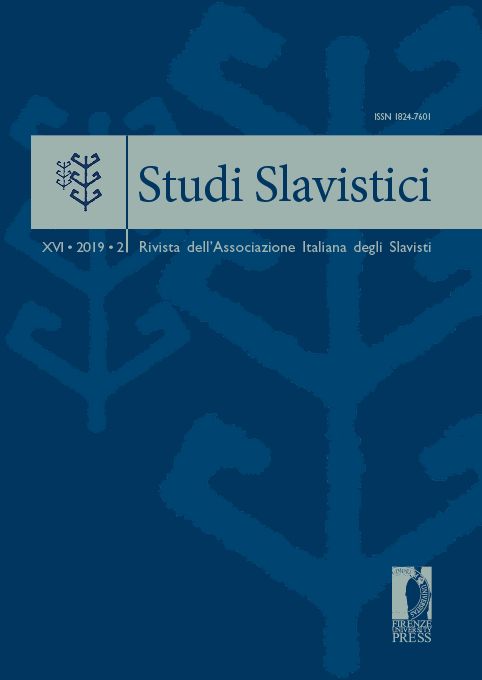Published 2020-01-20
Keywords
- Andrej Belyj,
- Caucasus,
- Visual Studies,
- Postcolonial Studies
Abstract
Andrej Belyj (1880-1934) went to the Caucasus three times, in 1927, 1928 and 1929. He recollected these experiences in two travelogues, A Wind from the Caucasus and Armenia. The aims of this article are to analyse how the author describes the Caucasian landscape and to underline the importance of the visual element in Belyj’s portrayal of the region. On the one hand, descriptions maintain traditional Romantic elements stemming from the works of Puškin and Lermontov, but on the other, they show new, modern (and Soviet) references, for example to a newly built monument to Lenin or to the numerous factories established by the Soviet government in the area. The 19th century myth of a picturesque and wild Caucasus is therefore placed side by side with a new mythology of modernization and projection into the future.


